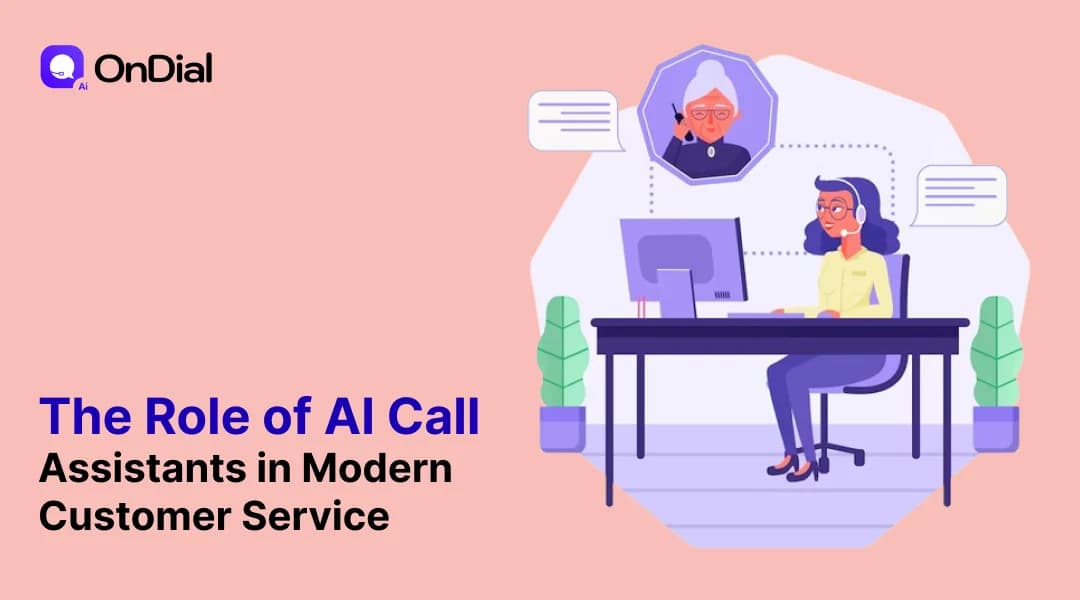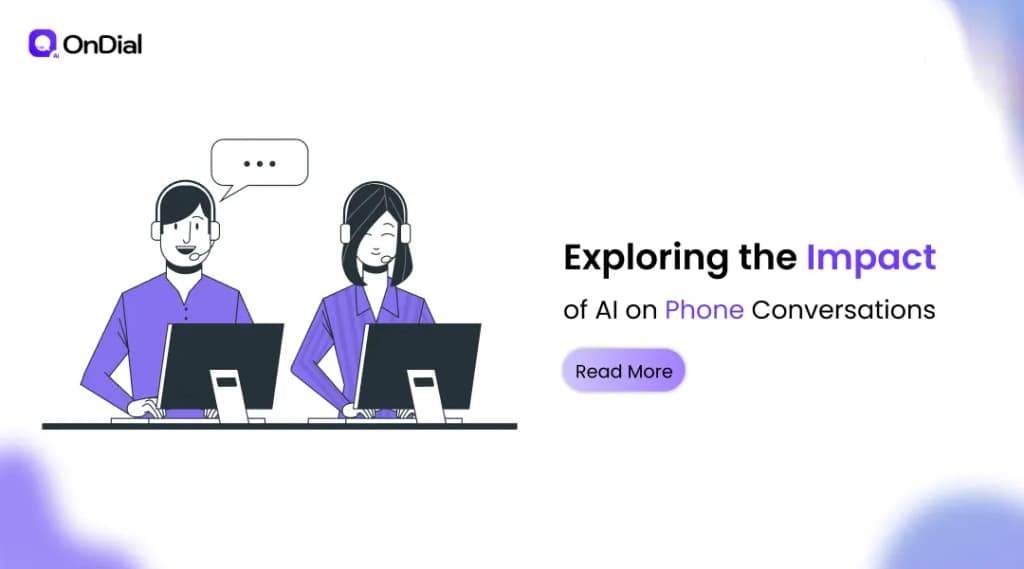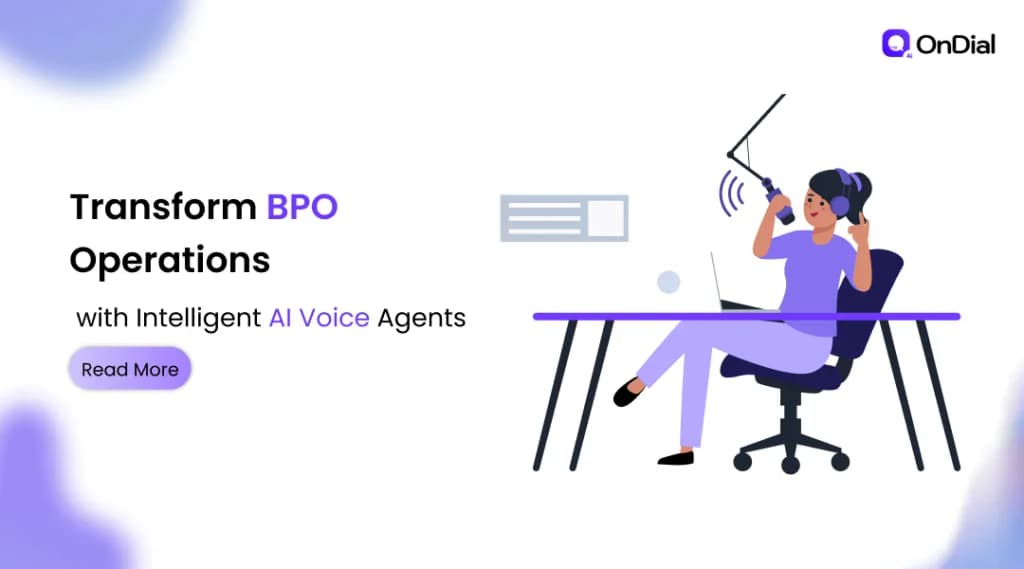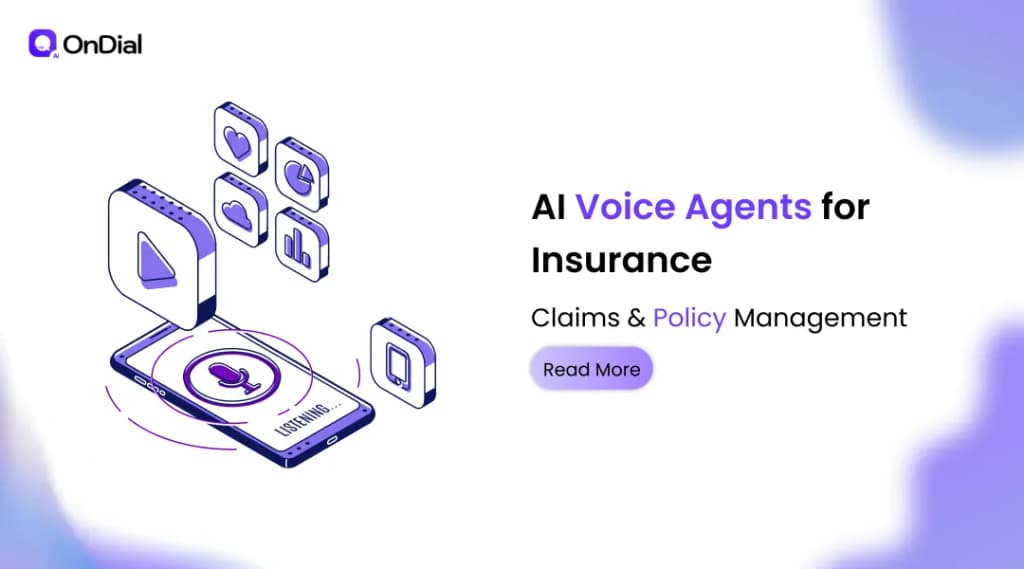Let’s start with honesty: customer service is messy. Long hold times. Repeated explanations. Frustrated callers. You’ve been there. I’ve been there too, trying to solve a problem while navigating a tangle of human agents who may or may not know the answer.
Enter AI call assistants. Not chatbots pretending to understand your tone. Not cold, scripted robots. I’m talking about AI that listens, responds, and adapts in ways that genuinely help your customers.
But here’s the kicker: most businesses still treat AI like a magic wand. Spoiler alert—it isn’t. Done right, it’s transformative. Done wrong, it’s expensive frustration.
In this piece, I’ll show you how AI call assistants work, why they matter, and how to use them without losing your mind or your customers.
How AI Call Assistants Work
Voice Recognition & Natural Language Processing (NLP)
At the heart of every AI call assistant is the ability to understand you. Not just your words, but your intent. NLP allows the system to parse conversations in real time.
Imagine a customer says: “I need to check my refund status.”
A human agent might ask for an account number. An AI call assistant does the same—but faster, without forgetting details mid-conversation. It can even detect frustration and escalate to a human agent if needed.
Integration with CRM & Helpdesk Tools
The AI doesn’t live in isolation. It connects with your CRM, ticketing systems, and helpdesk software. That means when a customer calls, the AI already knows their history. Past complaints, recent purchases, loyalty points, everything.
This isn’t just convenient. It’s powerful. Your AI assistant becomes an extension of your team, enhancing every Customer Call with context and accuracy.
Automated Call Routing & Task Handling
AI call assistants route calls intelligently. Not just “press 1 for support, 2 for billing.” I mean smart routing: recognizing intent, prioritizing urgent requests, and handling simple queries independently.
Tasks like appointment confirmations, order tracking, or FAQs can be completed without human intervention. Meanwhile, your human agents focus on complex or sensitive issues—where empathy and judgment matter most.
Benefits of AI Call Assistants
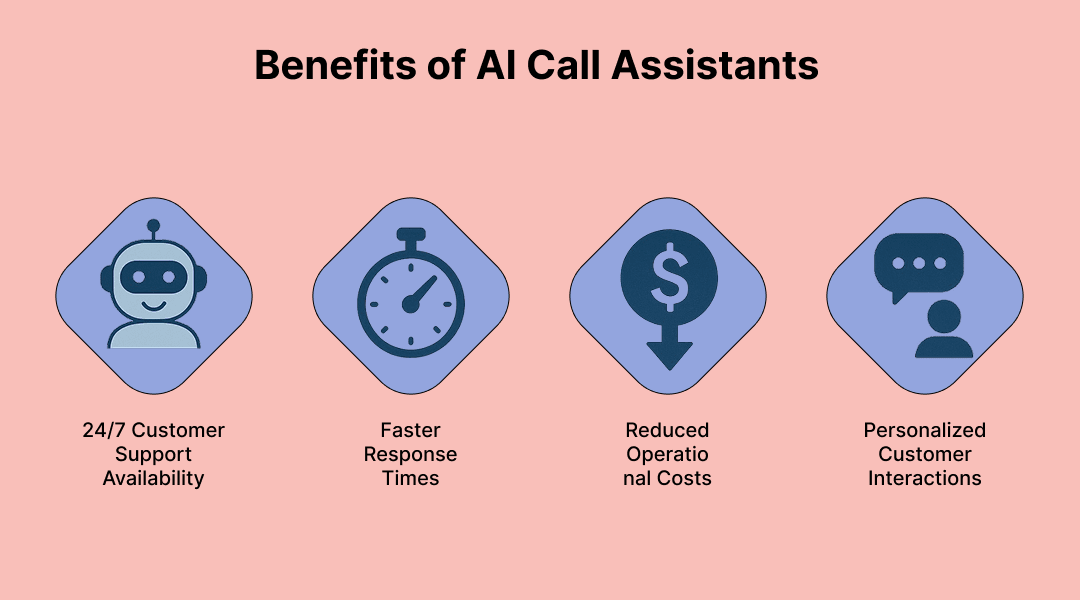
24/7 Customer Support Availability
Your business doesn’t sleep. Why should your support? AI call assistants handle calls any time of day, even holidays. Customers get immediate answers. You get a reputation for reliability. Simple.
Faster Response Times
The AI doesn’t take breaks. No coffee runs. No slow typing. Customers get answers in seconds, not minutes. Faster responses directly impact satisfaction scores and brand loyalty.
Reduced Operational Costs
Staffing a full-time call center is expensive. AI call assistants can handle routine queries at a fraction of the cost. Think fewer human hours spent on repetitive tasks and more budget for strategy and growth.
Personalized Customer Interactions
AI isn’t impersonal. When integrated with CRM data, it tailors conversations. Addressing customers by name, remembering previous interactions, suggesting solutions proactively—it’s like having a human who never forgets a thing.
AI Call Assistant vs Traditional Call Centers
Key Differences
Traditional call centers rely solely on human agents. AI call assistants complement humans, not replace them (most of the time). They handle high-volume, low-complexity tasks, leaving humans free for nuanced problems.
Efficiency and Accuracy
Humans are fallible. AI is precise. It reduces errors, eliminates repetitive data entry, and ensures consistency across calls. Misrouted calls or lost information? Practically gone.
Customer Satisfaction Metrics
Businesses that implement AI call assistants see measurable improvements: shorter wait times, higher first-call resolution, and better CSAT scores. Happy customers aren’t just statistics, they’re repeat buyers and brand advocates.
Challenges & Considerations
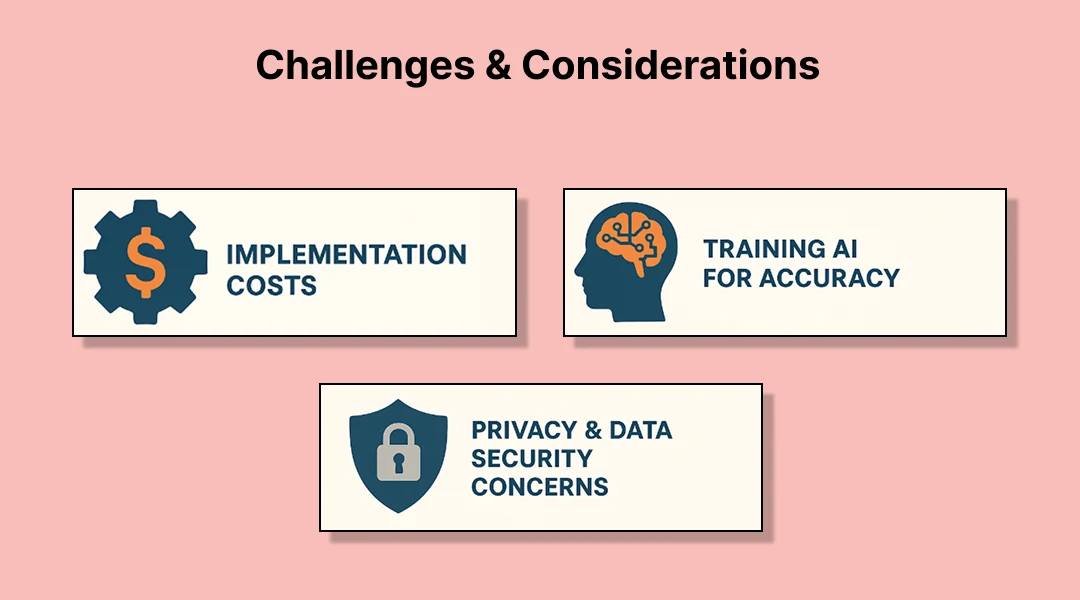
Implementation Costs
AI isn’t free. Customization, CRM integration, and training require investment. But the ROI often outweighs the upfront costs—especially when considering operational savings.
Training AI for Accuracy
An AI is only as good as its data. It needs ongoing tuning and updates. Think of it as mentoring a new employee—but without coffee breaks. Continuous feedback ensures better customer interactions.
Privacy & Data Security Concerns
Handling customer data is a big responsibility. Make sure your AI follows GDPR, CCPA, and local regulations. Encrypt, anonymize, audit. Trust is built with security, not slogans.
Best Practices for Businesses
Selecting the Right AI Call Assistant
Not all AI solutions are equal. Look for:
- Voice recognition accuracy
- CRM and helpdesk integration
- Customizable scripts and workflows
- Transparent pricing and vendor support
Combining AI with Human Agents
AI shouldn’t replace humans entirely. Blend the two: AI handles routine queries; humans tackle complex interactions. Customers feel cared for, not sidelined.
Continuous Monitoring & Improvement
Measure KPIs, listen to recordings, update models, and refine scripts. AI is never “set and forget.” Think of it as gardening—constant attention yields growth.
Future of AI in Customer Service
The horizon is exciting:
- Predictive support before customers even call
- Multilingual AI agents
- Sentiment analysis driving real-time interventions
- Integration with AR, VR, and IoT for immersive support experiences
The future isn’t just automation; it’s smarter, empathetic service that scales.
Conclusion
AI call assistants are no longer optional—they’re an operational edge. When deployed thoughtfully, they reduce costs, improve efficiency, and elevate the customer experience.
But the magic isn’t in the tech itself—it’s in the orchestration. Humans and AI together. Insights and empathy combined. That’s the sweet spot.
